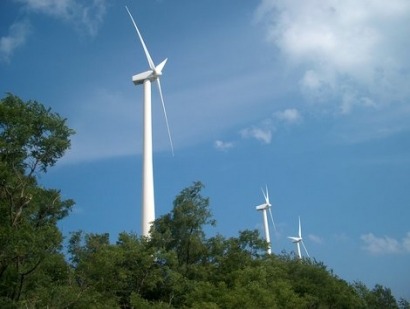
Mr Pickles has seen fit to make decisions personally on planning applications for wind farms instead of leaving the matter for locally elected councillors and planning inspectors to decide. These projects would have added 520MW of clean energy capacity to local communities from Cornwall to Northumberland – enough to power more than 275,000 homes. They would also have added £581 million to the economy and created 2,186 jobs.
Of the 50 projects called in by Mr Pickles, only 19 have been settled with all but two refused. Five of the projects turned down had previously been recommended for approval by the Planning Inspectorate, a non-executive agency of the Department for Communities and Local Government.
“Fifty interventions for onshore wind means higher bills for UK consumers, goes against public demand for renewable energy, and holds back action on climate change” said Maf Smith, RenewableUK’s Deputy Chief Executive. “These sites would have meant half a billion pounds in local investment creating over 2,000 jobs. Eric Pickles is clearly relaxed about such unprecedented intervention in the planning system. He has politicised what should be an independent and impartial planning system with 98 percent of wind farm appeals are now being decided by Mr. Pickles himself. His guiding principle seems to be localism - as long as you do what I say.”
The Secretary of State’s intervention in the work of local authorities has attracted widespread criticism from organisations as diverse as the CBI and the Campaign to Protect Rural England. The Director of Business Environment at the CBI, Nicola Walker, said in September that the actions created “a perfect storm for energy infrastructure investors” and the Director of Policy and Campaigns from the CPRE, Neil Sinden, stated that there has been “far too much ministerial intervention in the decision-making process.”
Speaking to the Communities and Local Government Committee in June, Conservative Councillor Gillian Brown, leader of Arun District Council, agreed that local authorities should be allowed to make their own decisions on wind farm applications.
For additional information:

